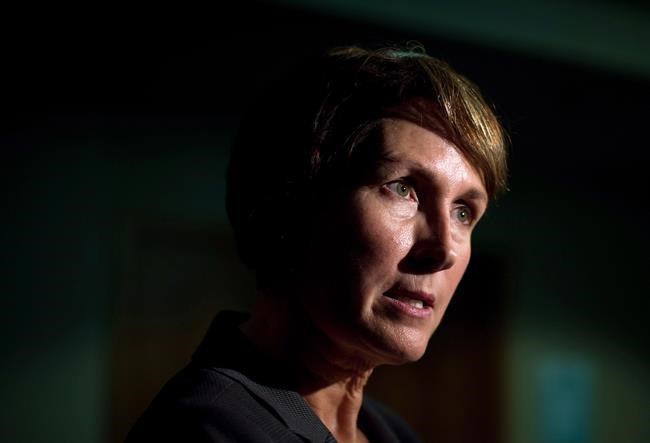OTTAWA — Mary Ellen Turpel-Lafond, a high-profile former judge whose claims to Indigenous identity have been discredited, is no longer a member of the Order of Canada.
A notice in Saturday's Canada Gazette, the federal government's official newspaper, said her appointment was terminated on Sept. 26 following her own request and the Governor General's subsequent approval. She had been appointed in 2021.
A social media post by the Indigenous Women's Collective, which had called for her removal, thanks the Governor General for "correcting a wrong."
Tracey Robinson, a member of the collective and a Treaty First Nations woman from Saskatchewan, said Turpel-Lafond's removal sends a message that tangible consequences await those who engage in Indigenous identity theft.
The claims about Turpel-Lafond in a CBC investigation in October 2022 have already rippled through the academic and legal communities, but for everyday Canadians, the Order of Canada is significant, she said.
"We're feeling a lot more optimistic today than we did a year ago," she said.
"Now Indigenous people are feeling empowered where they know that there are processes in place ... to ask for investigation, ask for accountability, ask for consequences," Robinson said in an interview on Friday.
The Indigenous Women's Collective was aware that part of the process when someone's appointment to the Order of Canada is under review involves approaching that person to offer an opportunity to step down, she added.
Robinson said Turpel-Lafond's removal could chart a course in the case of singer and activist Buffy Sainte-Marie, after a CBC investigation last week cast doubt on her claims of Cree heritage. The 82-year-old was named to the Order of Canada in 1997.
The public broadcaster found Sainte-Marie's birth certificate, signed by an attending doctor and stating she was a white baby born in Stoneham, Mass., in 1941 to the white parents she has previously said adopted her. CBC said Sainte-Marie’s marriage certificate, a life insurance policy, the United States census and interviews with family members corroborate information on the birth certificate.
Sainte-Marie said in a statement released the day before CBC's story ran that she doesn't know who her birth parents are or where she's from, but she is "a proud member of the Native community with deep roots in Canada."
Robinson said the harms caused by Indigenous identify theft are almost impossible to distil.
"We can talk about the loss of opportunity, the stealing of space, all of that is harmful. But it also creates kind of like a ripple effect, it creates harm (among Indigenous people) at a psychological level as well."
After CBC's investigation into Turpel-Lafond, she returned honorary degrees from several universities, including Simon Fraser University, Brock, and two Vancouver Island schools, while McGill, Carleton and the University of Regina have rescinded awards granted to her.
The former B.C. representative for children and youth previously told the public broadcaster that while she was growing up she didn't question the biological parentage of her father, who she has said was Cree.
Turpel-Lafond had also served as the director of the Indian Residential School History and Dialogue Centre at the University of British Columbia, where she was a tenured law professor until late 2022.
She told The Canadian Press earlier this year that she was satisfied in her past work, identity and self-worth.
An emailed statement she sent last March said it was "liberating" to be freed of honours because it permits her to "focus on what really matters" in her life.
This report by The Canadian Press was first published Nov. 3, 2023.
The Canadian Press
Note to readers: This is a corrected story. A previous version misspelled Mary Ellen Turpel-Lafond's last name in the extended headline.



